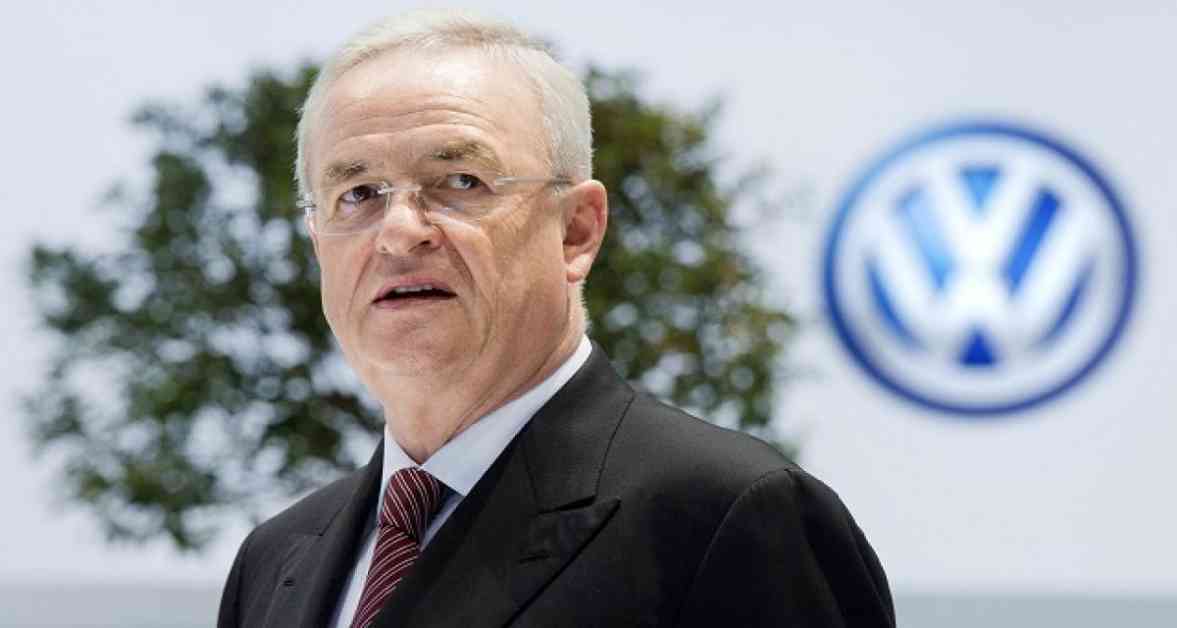Dieselgate Scandal: Former VW CEO Winterkorn’s Trial Opens in Germany
The Dieselgate scandal has been one of the most significant industrial scandals in the history of the automotive industry, alongside the Takata airbag scandal. It not only involved organized deception but also environmental scandal as some models marketed as « Clean Diesel » were found to emit more pollutants than a truck. The scandal first came to light in the United States when massive manipulation of emission tests in Volkswagen’s diesel models was exposed in September 2015. The deception involved performing well in regulatory tests while emitting high levels of pollutants in real-world conditions. This resulted in more efficient engines that required less maintenance but were environmentally harmful.
On Tuesday in Brunswick, Germany, the former CEO of Volkswagen, Martin Winterkorn, aged 77, appeared in court. Winterkorn is accused of being aware of the fraud and encouraging it. Despite denying any involvement in the deception, even Ferdinand Piëch implicated him in 2017. In addition to allegations of organized fraud, Winterkorn is also accused of knowingly lying to a German parliamentary inquiry and deliberately withholding information about the financial risks involved. Since the scandal broke, Volkswagen has already paid over 32 billion euros, with potential additional costs looming if the courts remain strict. Volkswagen is not the only company affected by the scandal.
Continental, as an equipment supplier, provided Volkswagen with the incriminating software. Continental agreed to pay a fine of 100 million euros in April 2024 to settle the charges. The company has announced plans to recover the amount from Vitesco, the new name of Continental’s former subsidiary responsible for the software. The scandal has had a global impact, with Bosch in the US paying $327.5 million in 2017 to resolve its alleged complicity in the scandal.
Rupert Stadler, former Audi CEO, was sentenced to 21 months of suspended prison time and a fine of 1.1 million euros in Germany last June. It was determined that Stadler was aware of the manipulation by 2016 but failed to take action to stop it. The Dieselgate scandal has shed light on potentially widespread practices in the automotive industry. Several manufacturers, including Renault, Peugeot, Citroën, and Fiat-Chrysler, are facing charges of aggravated deception in France. These companies were found to have software loops that deactivated emission control systems based on temperature or time, bypassing regulations.
The companies argue that their practices comply with legal requirements to protect the engine from damage. However, the European Court of Justice has ruled since 2023 that equipping diesel engines with software to disable emission components is illegal. In France, legal proceedings are still ongoing, with delays in Winterkorn’s trial due to his health issues. The trial is expected to shed more light on the scandal and hold accountable those responsible.
The magnitude of the scandal is staggering, with an estimated 19 million diesel vehicles still operating in Europe with suspicious emission levels. The International Council on Clean Transportation (ICCT) estimates that 53 million vehicles sold between 2009 and 2019, some of which are no longer in use, may have been affected. The financial implications are also significant, with Cummins, a supplier to Stellantis for RAM trucks, agreeing to pay $1.67 billion in early 2024 to avoid potential litigation.
Martin Winterkorn, once a symbol of German engineering prowess, resigned in September 2015 when the scandal broke. The Dieselgate scandal has tarnished the reputation of the German automotive industry. In France, legal proceedings are expected to include compensation for affected consumers, following the lead of other countries such as the US and England. However, the slow pace of justice in France has resulted in delays, with the first criminal trial expected to take place in 2025.
Implications of the Dieselgate Scandal
The repercussions of the Dieselgate scandal have been far-reaching, not only for Volkswagen but for the entire automotive industry. The revelations of widespread deception and manipulation have raised questions about the integrity of emissions testing and regulatory compliance across the industry. The scandal has highlighted the need for greater transparency and accountability in the automotive sector to restore trust among consumers and regulators.
The financial impact of the scandal has been immense, with Volkswagen alone paying billions in fines and settlements. The legal proceedings against key figures like Martin Winterkorn and Rupert Stadler serve as a warning to executives about the consequences of unethical behavior. The case has also prompted other manufacturers to review their practices and ensure compliance with emission standards to avoid similar scandals in the future.
Lessons Learned and Future Outlook
The Dieselgate scandal has been a wake-up call for the automotive industry, signaling the need for stricter oversight and enforcement of emission regulations. The case has demonstrated the importance of independent testing and verification of emissions data to prevent fraud and deception. Companies must prioritize environmental responsibility and consumer safety to rebuild public trust and avoid reputational damage.
Moving forward, regulators and governments must work together to strengthen emission testing protocols and hold companies accountable for non-compliance. The legal proceedings against individuals and companies involved in the scandal should serve as a deterrent to prevent future misconduct. The automotive industry must embrace transparency, innovation, and sustainability to regain credibility and ensure a cleaner, more ethical future for the sector.

